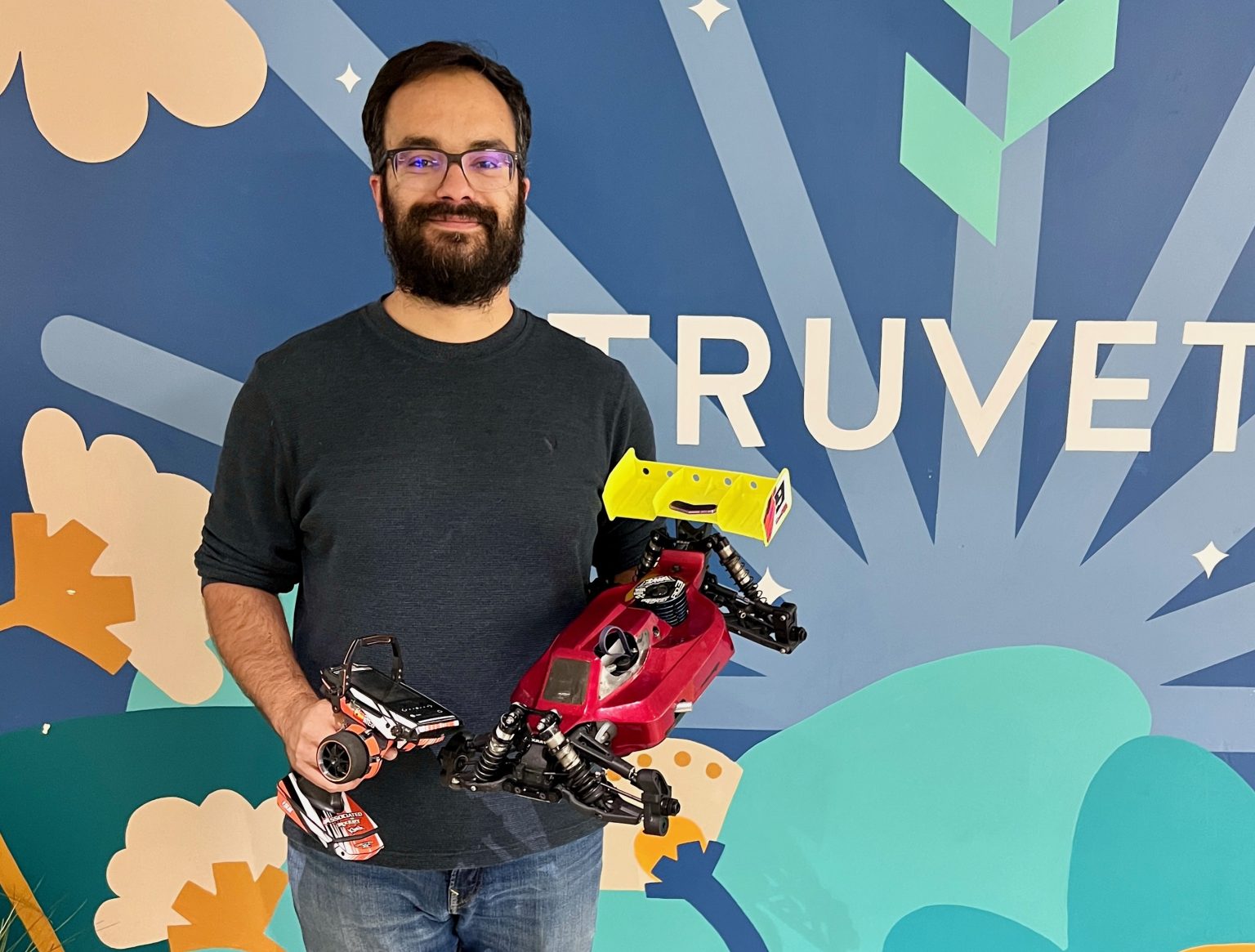The Engineering Mind at Play: How Dan Rico Finds Balance Through RC Racing
In the high-stress world of cybersecurity, Dan Rico has found an unexpected sanctuary in the world of remote-control car racing. As a senior security engineer at Seattle-area health data company Truveta, Rico spends his workdays protecting sensitive patient information from cyberattacks. But when the weekend arrives, he transforms into an avid RC car enthusiast, building and racing miniature vehicles that can reach speeds of up to 60 mph. This passion isn’t just a hobby—it’s a meaningful counterbalance to the demands of his professional life, offering both technical challenges and a supportive community that mirrors the best aspects of his work in technology.
Rico’s journey into both technology and RC racing began in his childhood in New York, where his father worked as a Microsoft Certified technician during the PC boom of the 1990s. Growing up, Rico witnessed firsthand the stress of engineering work—the late nights, the emergency troubleshooting calls, and the need for his father to find a way to disconnect on weekends. His father chose model airplanes as his escape, building them meticulously from scratch. “It fascinated me,” Rico recalls, “because I saw how he was able to truly separate himself from work, yet there was a clear parallel. It’s still engineering, there’s still design, there’s still the tedious processes, and it’s very time consuming.” This early observation planted the seeds for Rico’s own approach to work-life balance. By age 13, he had taken a job at a New York City hobby shop, where his love for RC planes, helicopters, and cars flourished, eventually filling his teenage bedroom with these miniature machines.
After moving to the Seattle area five years ago to work at Truveta, Rico reconnected with his childhood passion. At the 15-year mark in his cybersecurity career, he recognized the need for something that would help him decompress from the constant vigilance required in his professional role. “I love engineering, but you need something to really separate your life and break it up,” he explains. What he discovered was that modern RC racing had evolved significantly from the simple battery-operated toys of his youth. Today, Rico races sophisticated 1/10 and 1/8 scale stock cars, both nitro and electric-powered, competing at venues like Die Hard RC Park in Snohomish, Washington. There, he participates in races on a variety of indoor and outdoor tracks, and has even begun helping with track design and construction. As someone who has always built his own gaming computers, Rico particularly appreciates the physical dimension of RC cars—the tangible connection to the machine, the immediate feedback, and the pressure of solving mechanical problems under time constraints.
The parallels between Rico’s hobby and his work in cybersecurity are striking. In both realms, success depends on attention to detail, continuous adjustment, and quick problem-solving under pressure. “There’s all these little knobs, essentially, in both security and racing that need to constantly be tweaked and watched,” he observes. “It’s almost like incident response without actually responding to incidents. It’s just my car.” The frustrations and challenges of racing—diagnosing a mechanical issue, making rapid adjustments between heats, staying calm under pressure—all develop skills that translate directly to his work in security. Rico notes that his performance on the track often reflects his mental state: “At the end of the day, if the race went poorly it’s a reflection of how I performed. It’s a great way to measure how calm I’m being, how effective I can be. A lot of those things that I learn in racing I’m able to bring back into incident response.”
What Rico finds most rewarding about RC racing isn’t the competition itself but rather the community that surrounds it. He takes as much pleasure in helping other racers as he does in his own performance, often volunteering on “pit crews” for people he’s just met. “Since I joined I have pitted for over 15 people who I never met before,” he says. “Every time that happened it’s instantly a new friend, a new connection.” This collaborative spirit extends to his participation in programs like Drive Like a Girl, where he helps newcomers learn racing techniques. The supportive atmosphere reminds him of the cybersecurity community, where professionals are committed to mentoring others and sharing knowledge. “One of the things that I basically agreed to do when becoming a professional in cyber is constantly mentor, constantly stay on top of things and keep others apprised of updates,” Rico reflects. “It’s very similar to the RC side.”
In a tech culture that often glorifies non-stop work and constant connectivity, Rico’s story offers a refreshing perspective on the value of meaningful hobbies. His experience demonstrates how pursuing interests outside of work—especially those that engage similar parts of the brain in different contexts—can actually enhance professional performance while preventing burnout. The RC cars that fill Rico’s free time aren’t just toys; they’re sophisticated machines that challenge his engineering mind while allowing him to step away from the digital realm of cybersecurity. Through this hobby, he’s found not only a way to decompress but also a community that shares his values of continuous improvement and mutual support. Whether he’s fine-tuning a miniature race car or securing healthcare data against threats, Rico brings the same methodical approach and collaborative spirit—a testament to how the right hobby can become an extension of one’s professional identity while simultaneously providing the distance needed to maintain balance and perspective.


